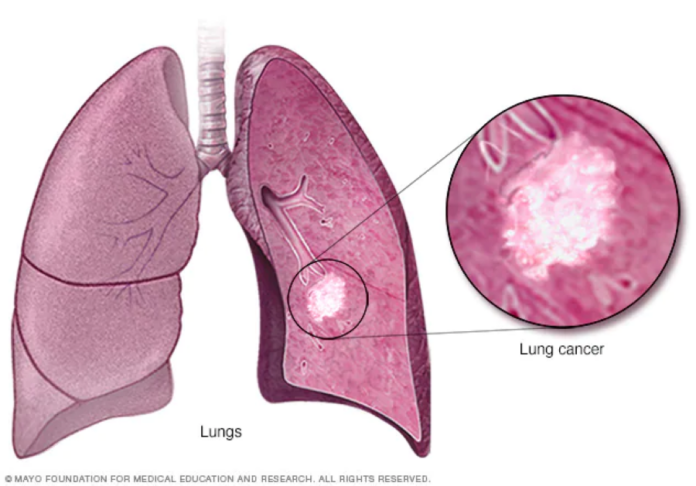The burden of lung cancer is significant and severely underreported in Nigeria and across sub-Saharan Africa, according to Professor Kelechi Okonta. Prof. Okonta, a consultant cardiothoracic surgeon and public health expert at the University of Port Harcourt Teaching Hospital in Rivers State, Nigeria, emphasized this issue during a lecture at the Princess Margaret Cancer Centre, Prosserman Centre for Health Research, Mount Sinai Hospital, University of Toronto, Canada. This occasion marked the first time an African was invited to present a lecture on lung cancer at the institution, underscoring Prof. Okonta’s prominence in lung cancer research globally.
During his lecture titled “Epidemiological Molecular Characteristics and Challenges with the Management of Lung Cancer: An Inquisitive Look at Nigeria and Sub-Saharan Africa,” Prof. Okonta highlighted that many individuals in these regions suffer from lung cancer without being aware of it, largely due to a lack of awareness and proper diagnostic facilities.
Challenges in Reporting and Diagnosing Lung Cancer
Prof. Okonta pointed out that the poor reportage of lung cancer in Nigeria and sub-Saharan Africa poses a severe challenge to the health systems of these regions. The underreporting stems from inadequate data collection, poor recording practices, and the absence of a lung cancer registry in Nigeria. This lack of structured data hinders effective lung cancer awareness and management strategies.
He also noted that the risk of lung cancer is higher among populations infected with Human Immunodeficiency Virus (HIV) compared to the general population. Despite a consistent association between lung cancer and cigarette smoking, many lung cancer patients in Nigeria are non-smokers. This indicates that other carcinogens, particularly those from petroleum products, may play a significant role in the development of lung cancer. Prof. Okonta highlighted the impact of polycyclic aromatic hydrocarbons present in both tobacco and petroleum products, which are known to cause cancer after prolonged exposure.
Environmental and Occupational Risk Factors
Increased refinery activities, urban pollution, and occupational exposure to various chemicals significantly contribute to the rising incidence of lung cancer in Nigeria and sub-Saharan Africa. Prof. Okonta emphasized that various chemicals emitted during refinery processes can cause cancer following prolonged exposure to their carcinogens.
Systemic Challenges in Lung Cancer Care
Prof. Okonta identified several systemic challenges that hinder effective lung cancer care in Nigeria:
- Resource Limitations: There is a gross lack of resources and general awareness regarding the burden of lung cancer and the available diagnostic and treatment resources.
- Impact of Smoking: The negative impact of cigarette smoking is exacerbated by the absence of a centrally coordinated population-based lung cancer registry.
- Lack of National Strategy: There is no centrally coordinated, well-designed, evidence-based national lung cancer control plan. The referral system within the national healthcare framework is cumbersome.
- Screening and Guidelines: Nigeria lacks a clear national lung cancer screening strategy, relevant policies, treatment algorithms, and care pathways, particularly for early disease detection. Additionally, the implementation of multidisciplinary teams (MDTs) for comprehensive care is uncommon.
Proposed Solutions
To address these challenges, Prof. Okonta proposed several solutions:
- Skill Development and Technology: Emphasis should be placed on skills development in diagnostics and addressing the technological gaps in practice.
- Healthcare Funding: The issue of underdiagnosis and inadequate healthcare funding needs to be resolved.
- Minimally Invasive Diagnostics: There should be a focus on minimally invasive methods for obtaining lung cancer biopsies and subjecting them to molecular testing to identify targetable driver mutations.
- Awareness and Data Collection: Creating lung cancer awareness through dedicated websites and comprehensive data collection is crucial.
- Advanced Therapies and Research Collaboration: Newer targeted therapies and advancements in genetic research should be pursued, along with collaboration and peer review in research. Prof. Okonta also advocated for molecular profiling in patient management to improve survival rates.
Building International Collaboration
The ultimate aim of Prof. Okonta’s lecture was to foster collaboration with the Princess Margaret Cancer Centre in Toronto in the area of lung cancer research and treatment, starting from Nigeria and extending to sub-Saharan Africa. Prof. Geoffrey Liu, the host of the lecture, expressed enthusiasm for collaborating with Prof. Okonta, recognizing his extensive contributions to lung cancer research.
This collaboration aims to leverage international expertise to address the significant challenges of lung cancer in Nigeria and sub-Saharan Africa, improving diagnosis, treatment, and overall patient outcomes.
















 The African Research (AR) Index is a comprehensive scholarly directory and database focused explicitly on journal publishers that publish and disseminate African research.
The African Research (AR) Index is a comprehensive scholarly directory and database focused explicitly on journal publishers that publish and disseminate African research.

